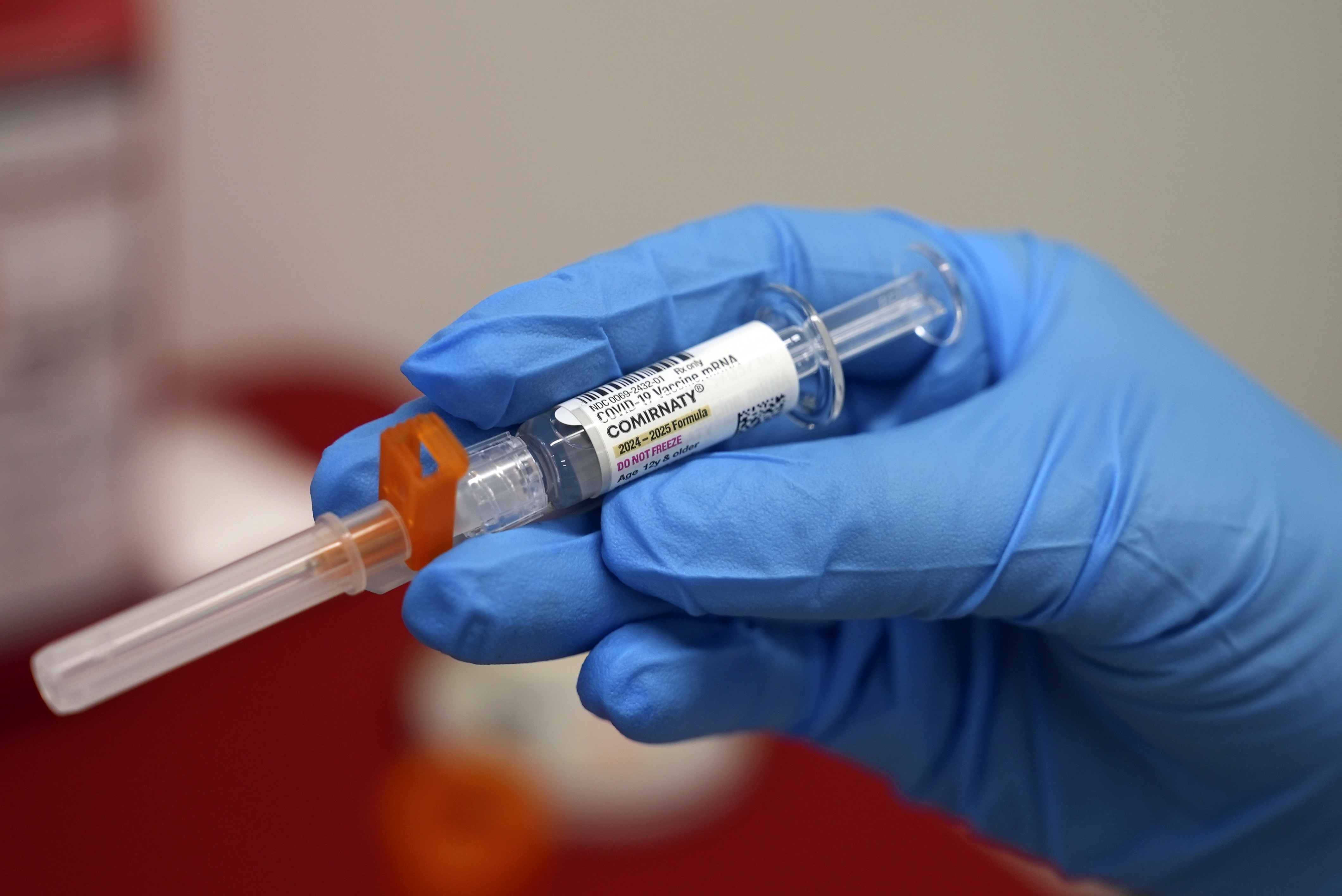Governor Tom Wolf issued stay-at-home orders for Philadelphia and surrounding counties in Pennsylvania to help stop the spread of the novel coronavirus. NBC10’s Steven Fisher has the story.
What to Know
- In an attempt to slow the spread of the novel coronavirus, Pennsylvania Gov. Tom Wolf is ordering people in the Philadelphia suburbs to stay at home unless a life depends on it. He is also extending the statewide school closures for another two weeks.
- The order, which is in addition to a similar stay-at-home order in Philadelphia, covers Allegheny, Bucks, Chester, Delaware, Monroe and Montgomery counties.
- "This virus, you know, is sneaky," Wolf said. "You get it before you know you have it.
Pennsylvania Gov. Tom Wolf is ordering residents of the state's hardest-hit areas to stay home to potentially save a life and help combat the spread of the new coronavirus that has already sickened hundreds and caused six deaths statewide.
Wolf announced the stay-at-home order -- which is in addition to an existing order in Philadelphia -- for Bucks, Chester, Delaware and Montgomery counties, surrounding Philadelphia went into effect Monday night. The order is also in place for Allegheny County, which includes Pittsburgh, and Monroe County in the Pocono Mountains.
The goal is to prevent a big strain on the state's health care system.
"Don't leave your home unless someone's life depends on you leaving, because, ultimately, someone's life does depend on you staying," Wolf said Monday afternoon.
Together, the stay-at-home counties account for about 75% of the state’s confirmed cases of COVID-19.
The directive, which will cover 5.5 million people, or more than 40% of the state’s population, began at 8 p.m. Monday.
Wolf said he hopes the stay-at-home order in those counties will help prevent COVID-19 from expanding in other parts of the state.
At least 644 people have tested positive for COVID-19, with six deaths, including one in Montgomery County and two in Northampton County.
Coronavirus Pandemic
Full coverage of the COVID-19 outbreak and how it impacts you
"This virus, you know, is sneaky," Wolf said. "You get it before you know you have it. Now, 80% percent who get it, they're going to be OK. And if you're part of that 80% you can be forgiven for saying, 'What's the big deal?' The big deal is that 20% are in danger. And that 20% includes our loved ones and our neighbors. And our problem right now is that we cannot treat that 20% if the virus takes off as it did in Italy. We don't have the capacity in our health care system so we need to buy time."
The stay-at-home order is the latest in a series of progressively tougher measures imposed by Wolf in the face of a pandemic that state officials say threatens to swamp hospitals and spike the death toll. Wolf had already closed schools and ordered all “non-life-sustaining” businesses to shutter their physical locations, an edict that state police and other government agencies began enforcing Monday morning.
CLICK HERE for a full list of essential and nonessential businesses.
Businesses that remain open to the public include grocery stores, pharmacies, hotels and motels, beer distributors, laundromats and gas stations. Restaurants are only open for take-out orders. The open list also includes farms, mines, food-production facilities and some manufacturers.
Car dealers, clothing stores, other retailers, salons and entertainment venues are among those on the shuttered list.
Wolf is also extending the statewide closure of schools for at least two more weeks, until April 6. He wouldn't commit Monday to when schools might actually reopen.
Officials acknowledged the hardships of children being out of the classroom.
“We know students are eager to engage with their teachers and return to learning,” Secretary of Education Pedro Rivera said in a news release. “Beginning (Tuesday) all schools will be able to work with their local intermediate unit to develop instructional plans for all students, including those with disabilities and English-language learners.”
On Monday, Pennsylvania officials also extended the closure of facilities in state parks and forests until April 30. The closure includes restrooms. People with reservations for campgrounds, cabins and other overnight accommodations will get refunds.
The Department of Conservation and Natural Resources said trails, lakes, forests, roads and parking areas remain open to the public but nonetheless urged people to practice social distancing and avoid crowded lots and trailheads.
"Before we can recover, we must survive," Wolf said, noting the hit to businesses and normal life.
"Our Commonwealth has not experienced a disruption of this magnitude in its supply chain since at least the Civil War," he added. "We will not come out of this unscathed. But if we work together, we can prevent more damage to our economy, more damage to our people and our way of life."


